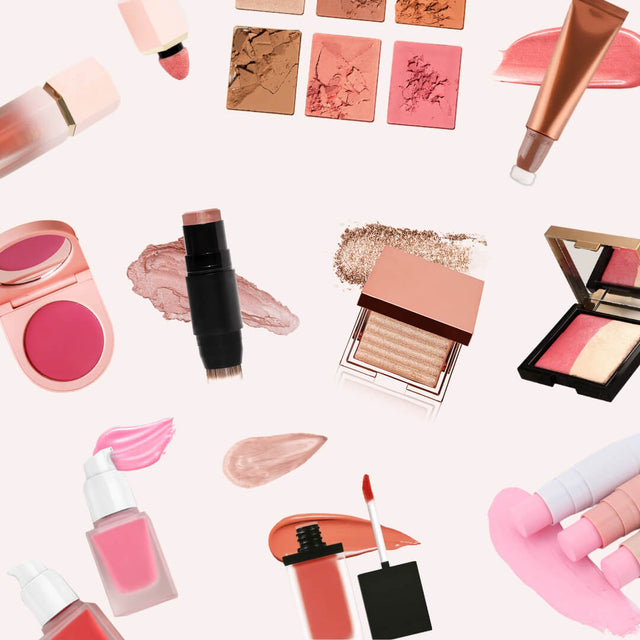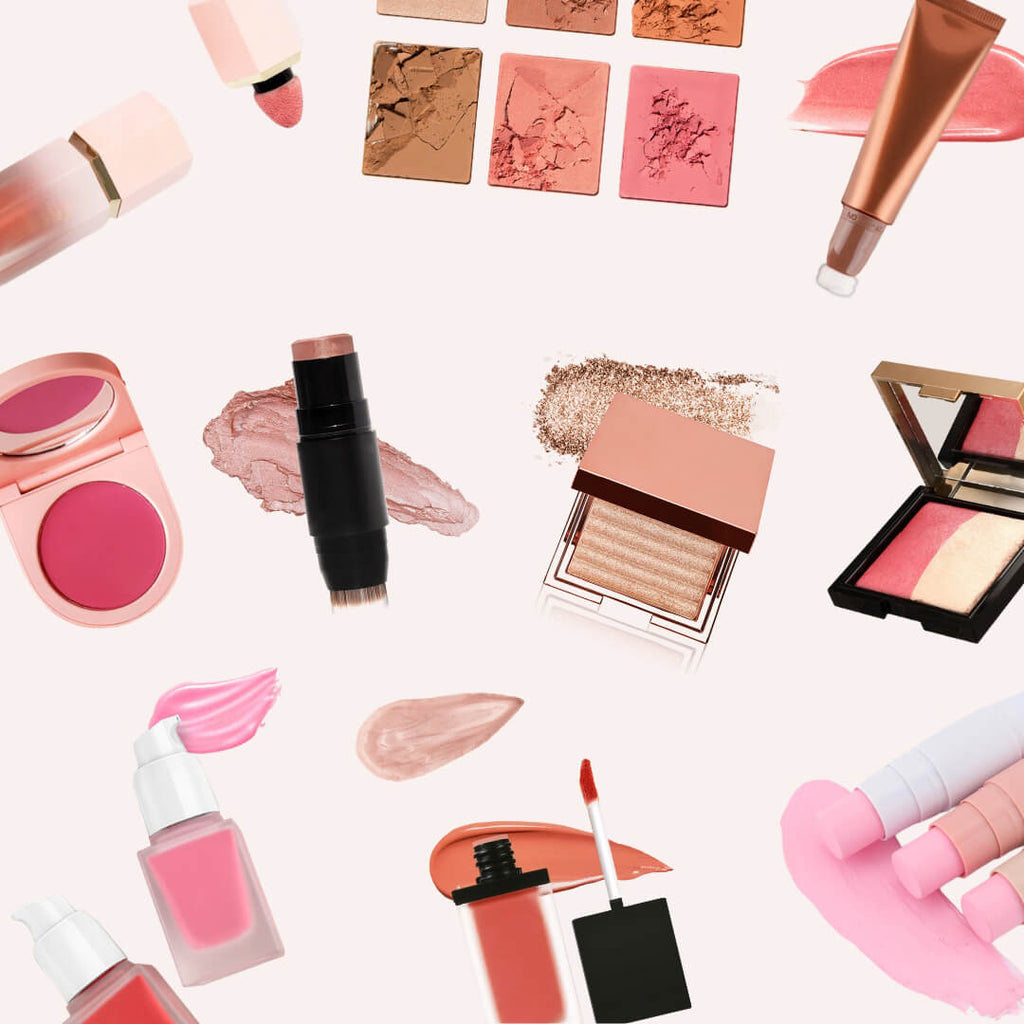REFY Beauty: Manufacturing Secrets and Success Strategies of an Emerging Beauty Brand
In-depth analysis of REFY Beauty's manufacturer network, brand positioning and development strategies, providing practical insights for new entrants in the beauty industry
REFY Beauty Brand Overview
REFY Beauty is a rapidly emerging British beauty brand founded by entrepreneur Jess Hunt. The brand embraces the philosophy of "embracing natural beauty," encouraging consumers to showcase their most confident selves through simplified makeup routines. REFY Beauty is known for its innovative, buildable and adaptive product formulas designed to help users easily create professional-looking makeup.
Core Brand Philosophy
REFY Beauty advocates a "less is more" philosophy, emphasizing natural makeup effects and product versatility. The brand encourages consumers to "be your most confident self," lowering the barrier to makeup while enhancing the user experience through simplified routines and easy-to-use products.
REFY Beauty Manufacturer and Supply Chain Analysis
According to foreign trade data, REFY Beauty Ltd. is an active British cosmetics purchaser with 171 transaction records as of March 1, 2024. This indicates the brand has established a strong and diverse supply chain network.
Main Manufacturing Partners
| Manufacturer Name | Location | Cooperation Products | Latest Transaction Date |
|---|---|---|---|
| Cosmax Inc. | South Korea | Skincare Products | 2024-02-06 |
| Shenzhen Rich Color Cosmetic Ltd. | Shenzhen, China | Makeup Brushes | 2024-02-03 |
| Boya Enterprises Co. Ltd. | Taiwan | Cosmetics | 2024-01-05 |
Supply Chain Characteristics
REFY Beauty's supply chain demonstrates the following characteristics:
- Global Sourcing: Partners with manufacturers in multiple regions including South Korea, China and Taiwan to ensure optimal quality and expertise
- Diverse Suppliers: Does not rely on a single manufacturer, reducing supply chain risks
- Specialized Division: Allocates production based on manufacturers' expertise (e.g., South Korea for skincare, China for makeup tools)
REFY Beauty Product Features and Innovation
REFY Beauty stands out in the competitive beauty market with its innovative products and unique formulations. The brand's product line mainly includes three categories: complexion products, brow products, and lip products.
Star Product Features
- Versatility: Products are designed for multiple uses, such as complexion products that can serve as both foundation and concealer
- Buildable Formulas: Products can be easily layered to achieve effects from natural to full coverage
- Simplified Routine: Aims to reduce the steps and time required for makeup, meeting modern consumer needs
- Inclusive Shades: Offers shade options suitable for various skin tones, emphasizing inclusivity
REFY Beauty Development History and Key Milestones
REFY Beauty has achieved significant growth in a relatively short period, providing valuable experience for emerging beauty brands.
Brand Development Timeline
- 2019: Brand founded by Jess Hunt, initially launching a small number of core products
- 2020: Gained initial attention through social media marketing with steady sales growth
- 2021: Entered international markets and mainstream retail channels such as Sephora
- 2022-2023: Expanded product line to include skincare and more cosmetic categories
- 2024: Consolidated market position with further diversification of supply chain
Key Success Factors
REFY Beauty's rapid development benefits from the following factors:
- Precise Brand Positioning: Captured the market trend for "natural makeup effects" and "simplified routines"
- Social Media Strategy: Effectively used social media and influencer marketing to build brand awareness
- Product Innovation: Developed differentiated products that meet unmet market needs
- Channel Strategy: Combined direct online sales with offline retail to maximize market coverage
Lessons for Emerging Beauty Brands
REFY Beauty's success provides valuable experience for new brands looking to enter the beauty industry. Here are the key takeaways:
1. Clear Brand Positioning
Find a differentiated market position and stick to it. REFY focused on "natural beauty" and "simplified routines," which stood out in an overly complex beauty market.
2. Build Resilient Supply Chain
Avoid relying on a single manufacturer. REFY partners with multiple specialized manufacturers, choosing the most suitable production partners based on product needs.
3. Product-Led Innovation
Develop products that truly address consumer pain points. REFY's versatile, buildable products meet consumer demands for simplified routines and personalized makeup effects.
4. Global Mindset
Consider global markets from the beginning. REFY's manufacturer selection considered regional expertise, laying the foundation for international expansion.
5. Social Media Strategy
Effectively use social media to build brand community and loyalty. REFY built strong brand influence through authentic content and user-generated content.
6. Channel Diversification
Combine direct-to-consumer (DTC) with retail partnerships. REFY sells both through its own website and mainstream retail channels like Sephora.
Beauty Industry Trends and Opportunities
Based on REFY Beauty's success and current beauty market developments, the following trends present opportunities for emerging brands:
Beauty Segments Worth Watching
| Segment | Opportunity Analysis | Reference Brands |
|---|---|---|
| Clean Beauty | Growing consumer demand for ingredient transparency and safety | Rare Beauty, Merit Beauty |
| Multi-Functional Products | Increasing consumer demand for simplified routines and reduced product numbers | REFY Beauty, Glossier |
| Inclusive Beauty | Growing importance of providing products for consumers of different skin tones, genders and ages | Fenty Beauty, Fluide Beauty |
| Men's Beauty | Rapidly growing male grooming market that is not fully developed | War Paint, Bulldog |
| Sustainable Beauty | Eco-friendly packaging and sustainable ingredients becoming important purchasing considerations | Lush, Ethique |
Recommendations for Choosing Manufacturing Partners
Emerging beauty brands should consider the following factors when selecting manufacturing partners:
- Areas of Expertise: Choose manufacturers with expertise in specific product categories (e.g., South Korea for skincare, China for makeup tools)
- Minimum Order Quantity (MOQ): Find manufacturers with MOQ requirements suitable for startup brands
- Compliance Capabilities: Ensure manufacturers meet regulatory requirements of target markets (e.g., EU CPNP, US FDA)
- R&D Support: Prioritize manufacturers that can provide formulation development and innovation support
Conclusion
REFY Beauty's success proves that even in a competitive beauty market, emerging brands can achieve significant growth through clear brand positioning, innovative product design, and strategic supply chain management.
For entrepreneurs looking to enter the beauty industry, REFY's experience shows that:
- Finding a differentiated market position is crucial
- Building a diverse manufacturer network can reduce risks and gain professional advantages
- Product innovation should be directed at solving real consumer pain points
- Social marketing and community building are key drivers for emerging brand growth
- Considering global markets from the beginning can lay the foundation for long-term growth
As consumer expectations for beauty products continue to evolve, emerging brands have the opportunity to succeed by focusing on specific niche markets, adopting innovative approaches, and building resilient supply chains. REFY Beauty's experience provides a valuable roadmap for this journey.
Frequently Asked Questions About REFY Beauty
REFY Beauty works with multiple specialized manufacturers globally. Based on trade data, their key manufacturing partners include Cosmax Inc. in South Korea for skincare products, Shenzhen Rich Color Cosmetic Ltd. in China for makeup tools, and Boya Enterprises Co. Ltd. in Taiwan for cosmetics. This multi-manufacturer approach allows them to leverage specialized expertise from different regions.
REFY Beauty is a British beauty brand founded in the UK by entrepreneur Jess Hunt. While the brand is UK-based, it utilizes a global supply chain with manufacturing partners primarily in Asia, including South Korea, China, and Taiwan, to leverage regional expertise in different product categories.
REFY Beauty products stand out for their focus on versatility and simplified routines. Key unique features include: buildable formulas that can be layered from natural to full coverage, multi-functional products that serve multiple purposes, adaptive textures that work with different skin types, and inclusive shade ranges that cater to diverse skin tones.
REFY Beauty's rapid growth can be attributed to several factors: strong social media presence and influencer marketing, clear brand positioning around "natural beauty" and simplified routines, innovative product development that addressed market gaps, strategic retail partnerships with companies like Sephora, and a diversified supply chain that ensured product availability and quality.
REFY Beauty follows a "solution-oriented" product development philosophy. Each product is designed to solve specific consumer pain points in the beauty routine. They focus on creating products that are easy to use, multifunctional, and deliver professional results without complexity. This approach aligns with their core brand message of helping consumers "be their most confident self" through simplified beauty routines.
Yes, emerging brands can learn from REFY Beauty's supply chain approach by: diversifying manufacturing partners rather than relying on a single supplier, selecting partners based on their specific expertise (Korean manufacturers for skincare, Chinese for tools, etc.), establishing clear quality control standards across all partners, and building relationships with manufacturers that offer flexible minimum order quantities suitable for growing brands.
For emerging beauty brands, the ideal manufacturing partner should offer: reasonable minimum order quantities (MOQs), formulation development support, regulatory compliance expertise for target markets, flexibility for rapid scaling, transparency in processes and pricing, and experience working with emerging brands. Many manufacturers now offer "startup programs" specifically designed for new beauty brands.


